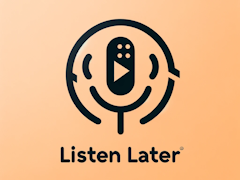By John Gruber

Listen Later: Turn articles into podcasts and listen anywhere.
WWDC 2008 Miscellany
Friday, 20 June 2008
A few observations regarding last week’s WWDC and related news:
In my piece this week regarding the potential interest among existing iPhone users in upgrading to the new iPhone 3G, I neglected to mention what might be the single biggest factor: AT&T’s 3G wireless coverage. Things look good if you live in or near a major metropolitan area; if you don’t, well, I hope you like EDGE.
For those who do upgrade from an original iPhone to a new iPhone 3G, no one seems to know yet what you’ll be able to do with an old iPhone no longer associated with an active AT&T account. I presume you’ll be able to sign up for a new account with AT&T, but also that you’ll have to pay the new, more expensive, monthly rates — even though the original iPhone doesn’t support 3G networking. (Sort of like how you’ll have to pay the higher rate even if you live in an area without 3G coverage.)
Update: This purported leaked AT&T memo states, “The 2G data rate plans will remain available for 2G devices until further notice.” Which means you should be able to sign up for a cheaper EDGE-only data plan for an original iPhone.
Interest in the jailbreak iPhone APIs was non-existent. Clearly, none of Apple’s actual conference sessions or labs were going to cover, nor even mention, unofficial APIs. What I’m saying is that it didn’t seem like any attendees were talking about them or showing off jailbreak apps in the hallways, either. Could be I just didn’t happen to run into them, or that the sort of people who remain interested in writing jailbreak iPhone apps are not the sort of people who go to WWDC.
Developers, by and large, are very happy with Apple’s Cocoa Touch APIs and developer tools — a far cry from last year’s “sweet” shit sandwich.
Regarding prices for the iPhone App Store, it seemed pretty obvious from the prices mentioned during the keynote that “free” and “$9.99” are going to be common price points. Gene Munster sampled a very small number of developers at the conference (20) and concluded that 71 percent of the apps they plan to offer will be free. I think there will be plenty of free and ad-supported iPhone apps, but I think Apple will balance the ratio of free to paid apps carefully. Apple wants to encourage impulse buys, not merely impulse downloads.
There were a lot of new attendees. New-to-WWDC, new-to-Cocoa, new-to-Mac-OS-X. This is not a surprise, given that WWDC had never previously sold out. But it was easy to pick up in the conversations in the hallways. And two engineers from Apple told me that it wasn’t just for the iPhone — that they were seeing plenty of new-to-Cocoa developers in the Mac-specific sessions and labs, too.
A ton of the stuff that impressed me the most was in the WebKit related sessions. Unlike much of the other technical information provided at WWDC, much of the WebKit-related news is publicly available. What struck me watching these demos is that you could build a really slick web app UI using stuff like the canvas tag, SVG, and advanced CSS. Yes, none of this stuff works in IE, and IE still has massive market share — but not among the sort of people who adopt hip new web apps. The combined market share for, say, Firefox 3 and Safari 3 is larger than the overall market share for Mac OS X. Plenty of developers write desktop software that only works on the Mac — why aren’t more people writing web apps that only work in truly modern web browsers? The first one to do it is going to be a sensation.
The Carbon news was no news. Nada. Contrary to some pre-WWDC reports, there was no news about Carbon going away. But there also wasn’t any news about Carbon going forward. (Unless I missed it, there wasn’t a single session title with “Carbon” in the title.)
Lastly, there’s a lot of curiosity regarding the iPod Touch. Higher-cost monthly service plans notwithstanding, the $199 starting price for the iPhone makes the $299 price for the 8 GB Touch seem high. Last year, after the original iPhone shipped, it seemed obvious to me that Apple would release an iPod that was more or less the iPhone without the phone. This year, it doesn’t seem clear at all how the iPhone 3G suggests any new hardware features for the iPod Touch. 3G networking is a phone feature, and I don’t think the iPod Touch is going to get GPS.
My guess is that for the next few months, the iPod Touch pricing remains the same. If sales drop because potential iPod Touch buyers opt for a $199 iPhone 3G instead, don’t expect many tears from Apple executives. Then, in September, at Apple’s annual music and iPod shindig, I think we’ll see an iPod Touch price cut (or a shift, where the 8 GB model is dropped and $299 gets you the 16 GB model), and, rather than any signficant hardware changes, a bunch of new software features. One thing that’s conspicuously absent from the immiment 2.0 release of OS X iPhone are new applications from Apple. I’m thinking maybe the strategy is to ship the OS first, now, and then spend the summer finishing a few new apps.
| Previous: | Up Flash Creek Without a Paddle |
| Next: | New Linked List Permalinks |
